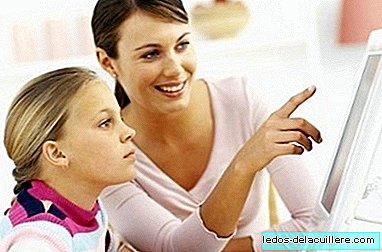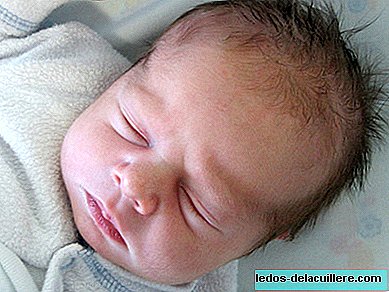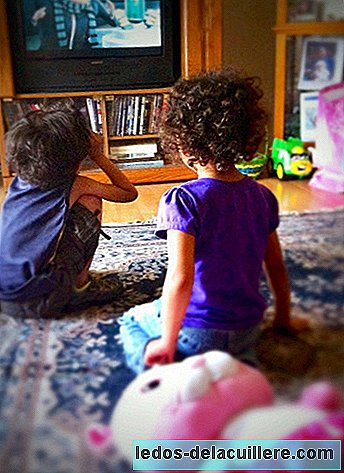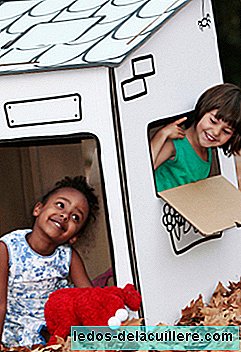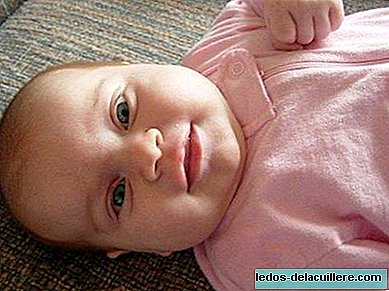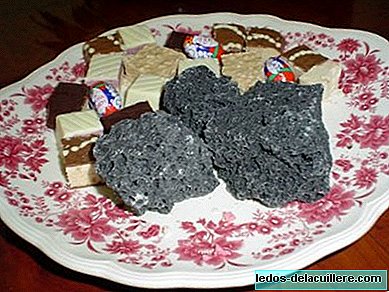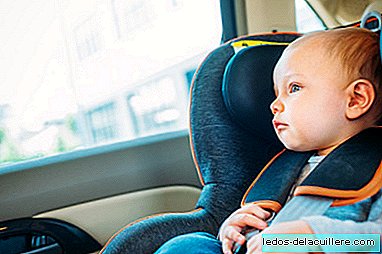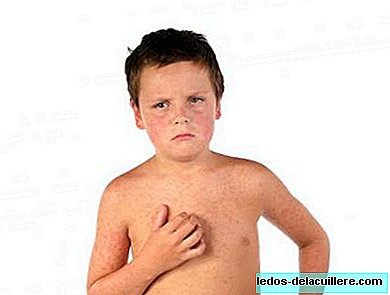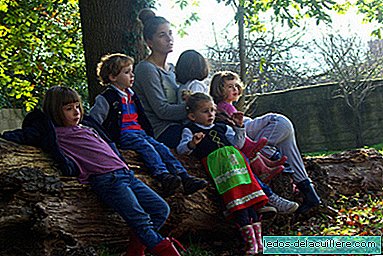
We have interviewed María Jesús Álvarez Sierra who is one of the mothers involved from the beginning in the Andolina College (Gijón) training project, and is currently part of the Governing Board. Andolina means 'swallow' and I think that using a flying bird name to designate a school that adopts innovative educational models and allows children to be the true protagonists of learning, is very successful since these animals symbolize freedom.
Andolina is an educational center approved by the Ministry of Education of the Asturian Government, its management is carried out by a family cooperative which is not for profit, it is also declared of Social Interest. It is a private, mixed and secular Infant and Primary School.
They have managed (by virtue of the principle of pedagogical autonomy of the teaching centers declared legislatively in the Principality of Asturias) to carry out a work plan that allows students not to limit themselves to develop their full potential. Thus they can also exceed what is established by the curriculum.
The truth is that I liked very much to meet Andolina, whom I had already heard about when the project began to take shape. I think schools should be run by families, and you know that I have a special predilection for innovative pedagogies. I want to congratulate all the fathers and mothers who have participated in the construction of this school that I would like for my children.
Let's start with the interview. Peques and More.- What is Andolina?
M.J.A.- An approved educational center for pre-primary and primary education, in which, fulfilling the official program, the rhythms of individual interests are respected, self-taught and cooperative learning is encouraged, and you learn to learn, rather than memorize. It is a small center (40 students in this first year, about 11 per year of birth), family, with a very low ratio (between 10 and 15 children per adult) and cozy atmosphere, where we want children to feel in the first place safe to be able to develop their capabilities fully.
PyM.- What kind of education did the parents look for when you started this initiative?
M.J.A.- One in which children are respected, as global people, with their differences and their different rhythms and ways of learning. An education aimed at facilitating the growth of innate abilities in people, to achieve the necessary knowledge and skills in today's world. We found a very anchored educational system in the forms and funds of past times, little adapted to current times and realities, and with little regard to the individual characteristics of each student.
PyM.- Could you explain what are the methodologies used in Andolina ?, and how do they differ from conventional education?
M.J.A.- Basically The active methodology is that the learning is not limited to what is collected in the book of a specific publisher on certain subjects supposedly suitable for each age. Students express their curiosities and concerns in assemblies, from which work projects come out (sometimes they are also proposed by adults), they look for different sources of information to nurture and encourage the development of their own criteria when selecting the valid information from which it is not, they request other sources if they see it necessary (a practical workshop on the subject, visits to places of interest or a talk by a professional, for example ...), and in general, they develop projects in which Learning develops in a transversal and self-taught way.
On the other hand Thematic workshops are held to ensure minimum objectives in some subjects: English, mathematics, science, psychomotor skills… Finally, the spaces prepared to promote learning through play mean that, where children play, by themselves, is the greatest means of learning that can be found in Andolina. To be a perfect tool for learning without judgments, without relying on adult observation, a liberating and rewarding experience fundamental to the child's development.
Among the principles of the school are to provide a calm and safe environment, confidence in the abilities of each child, respect for the maturation process of each one or take into account the motivations of each student as a starting point

PyM.- I have read that in Andolina there are no teachers, but companions, what is their role?
M.J.A.- Facilitate materials and situations for learning, emotionally support children, ensure respect for the rules of coexistence that make the school a safe and welcoming place for all, track the individual evolution of each child to detect possible unmet needs, maintain fluid communication with families, and in summary, be a companion, a reference and a guide when needed, in no case a judge or an examiner.
PyM.- I imagine that there will be no textbooks, no homework ... in the cases in which your children had previously attended other schools, what differences have you noticed?
M.J.A.- I can only speak personally. My son is now in 1st grade but in kindergarten he attended a school that did not use books or put homework.
In the emotional aspect I can tell you that now it is very valuable that you do not put red or green stickers for having a "proper" behavior, that you are not forced to eat, to make meaningless rows or to go to the bathroom when you do not feel like it. He is aware of the lack of respect that this implied and when he remembers it it is with an outrage that he did not feel at that moment, but that comes to the surface as he sees another way of working.
PyM.- What educational stages are taking place in Andolina ?, and at the end of the studies do students get their certificate?
M.J.A.- The school has opened in September 2011 with early childhood education and the first cycle of primary school. It will grow with children to cover all primary. It is a center approved by the Ministry of Education, and therefore the primary degree is the same as in any other official center.
The foundations of Andolina are: prepared environment, integral vision of education, respect for individual development, teacher training and families in charge of the cooperative, the construction of mentalities based on curiosity, definition of rules and limits, and the play as a children's guiding activity

PyM.- How many families are part of the cooperative?
M.J.A.- Currently about 30 families.
PyM.- What are the main obstacles that you have encountered along the way?
M.J.A.- At first the fear of not being able, the lack of a similar previous experience ... Also the administrative and bureaucratic obstacles, which make it necessary to lose many hours in the halls of City Halls and Councils, make thousands of calls, work hard on thousands of documents ...
And finally the need to gather a minimum number of students for economic viability, since many people came to ask and liked the project, but the jump to join the cooperative was very difficult to give when we did not have a physical school in progress, it is logical. They were many months of interviewing us with many families to become the current 30.
However, we now have a considerable waiting list of families who cannot get a place for their children in our center.
When we undertook this initiative we found that the current education system is very anchored in the forms and funds of past times, little adapted to the current times and the realities that we live, and with little consideration towards the individual characteristics of each student
PyM.- I would like you to tell us about Andolina's facilities: classrooms, laboratory, exercise space, etc. and how the needs of the children have influenced the physical distribution of the places.
M.J.A.- We have the spaces required by the regulations, and we have adapted them as best we could to the real needs, for example the gym is just for so much need for movement, so the outside is used a lot, as long as the weather allows .
The location of the corners in the classrooms has been varying during this first course, almost continuously, because when adults saw a space well in a certain way, there were the children to show us that they were not worth it, that they had to work a little more.
This has been the tonic of the first year, and fortunately we have that possibility because the companions are magnificent observers who know how to interpret the needs of the children and seek the way among all, to give them the possible support. As an example of this, the music corner has been changed twice, the art and crafts as well, and in the kitchen it has been necessary to undo important work that had been done in terms of furniture to retrofit it. We are constantly changing and growing..
I hope you liked it as much as I know a little more Andolina, I know that many can tell me that initiatives like these can only be available to a few, but Is there anything more beautiful than chasing our dreams? Is there anything more legitimate than seeking education that best fits our way of seeing the world?
I have to thank María Jesús for allowing us to get to know Andolina a little more, and before giving up the interview, I leave you with the programming of the three Summer camps that are going to be developed in this school, as a sample of the incessant activity that as complementary activities they develop.
Images | Colegio Andolina More information | Colegio Andolina, blog of the Andolina En Peques y Más school | Juan Luis Yagüe, director of the Eurocolegio Casvi: "in bilingual schools they focus too much on English, leaving aside the rest of the subjects, nor getting spectacular results"


